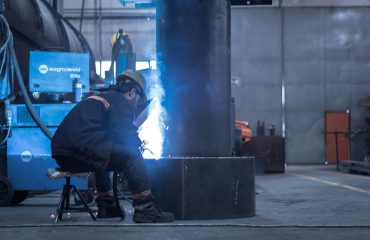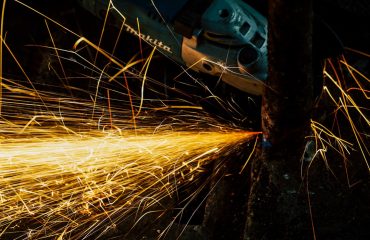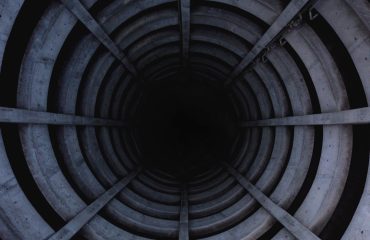Turkey’s steel industry has emerged as a significant player on the global stage, consistently demonstrating a remarkable competitive edge. This success isn’t accidental; it’s the result of a strategic combination of factors that have propelled Turkish steel producers to prominence. This post delves into the key elements contributing to this remarkable achievement.
1. Robust Production Capacity and Infrastructure
Turkey boasts a robust and rapidly expanding steel production infrastructure. Significant investments in modern steel mills, equipped with advanced technologies, have significantly increased production capacity. This modernization includes the adoption of electric arc furnaces (EAFs), which are increasingly energy-efficient and environmentally friendly compared to traditional blast furnaces. This focus on efficiency translates directly into lower production costs and faster turnaround times, allowing Turkish steel producers to meet the demands of a dynamic global market. Furthermore, strategic geographic location facilitates efficient access to raw materials and export routes, further enhancing production capabilities.
The government’s commitment to supporting the steel industry through various initiatives, including tax incentives and infrastructure development, has also played a crucial role in bolstering production capacity. This supportive environment fosters growth and attracts both domestic and foreign investment, leading to continuous expansion and technological upgrades within the sector.
2. Stringent Quality Control and International Standards
The quality of Turkish steel is a cornerstone of its competitive advantage. Turkish steel producers adhere to stringent quality control measures throughout the entire production process, ensuring that the final product meets and often exceeds international standards. This commitment to quality is evident in the widespread adoption of ISO certifications and other relevant industry standards, demonstrating a dedication to producing consistently reliable and high-performance steel. This rigorous approach builds trust with international buyers and enhances the reputation of Turkish steel in the global market.
Regular inspections, advanced testing facilities, and a skilled workforce all contribute to maintaining the high quality standards. Continuous improvement initiatives and a commitment to research and development further enhance the quality and performance characteristics of Turkish steel, making it a preferred choice for a wide range of applications.
3. Innovation and Technological Advancement
The Turkish steel industry isn’t resting on its laurels. Continuous innovation and technological advancement are key drivers of its competitiveness. Significant investments in research and development (R&D) are leading to the development of new steel grades and alloys with enhanced properties, catering to the evolving needs of diverse industries. This focus on innovation extends to optimizing production processes, improving energy efficiency, and minimizing environmental impact. The adoption of advanced technologies, such as automation and robotics, streamlines production and enhances overall efficiency.
Collaboration with universities and research institutions further fuels innovation within the sector, fostering a culture of continuous improvement and technological advancement. This proactive approach ensures that Turkish steel remains at the forefront of the industry, offering cutting-edge solutions to meet the demands of a rapidly changing global market.
4. Cost-Effectiveness and Competitive Pricing
Despite the high quality and advanced technology employed, Turkish steel producers maintain a competitive edge through cost-effectiveness. Factors contributing to this include efficient production processes, access to relatively inexpensive raw materials, and a skilled yet cost-competitive workforce. Strategic partnerships with suppliers and the optimization of logistics networks further reduce costs, allowing Turkish steel to be priced competitively in the global market without compromising quality.
The government’s support in streamlining regulations and reducing bureaucratic hurdles also contributes to cost efficiency. By minimizing unnecessary expenses, Turkish steel producers can offer attractive pricing strategies, making their products appealing to buyers seeking a balance between quality and affordability.
5. Global Reach and Strategic Partnerships
Turkey’s strategic geographic location provides easy access to both European and Asian markets, significantly enhancing its export capabilities. Turkish steel producers have successfully established a strong global presence, exporting their products to numerous countries across the world. This extensive reach is further supported by strategic partnerships with international distributors and trading companies, expanding market penetration and building strong relationships with customers worldwide.
The development of robust logistics and transportation networks ensures efficient delivery of steel products to international clients. This commitment to global reach, coupled with a dedication to providing high-quality products at competitive prices, has established Turkish steel as a reliable and trusted supplier in the international marketplace.
In conclusion, the competitive edge of Turkish steel is a result of a multifaceted strategy encompassing robust production, stringent quality control, continuous innovation, cost-effectiveness, and a strong global presence. These factors combine to make Turkish steel a formidable force in the international market, poised for continued growth and success in the years to come.
SEO Tags:
Turkish Steel, Steel Industry, Steel Export, Steel Production, Competitive Advantage




